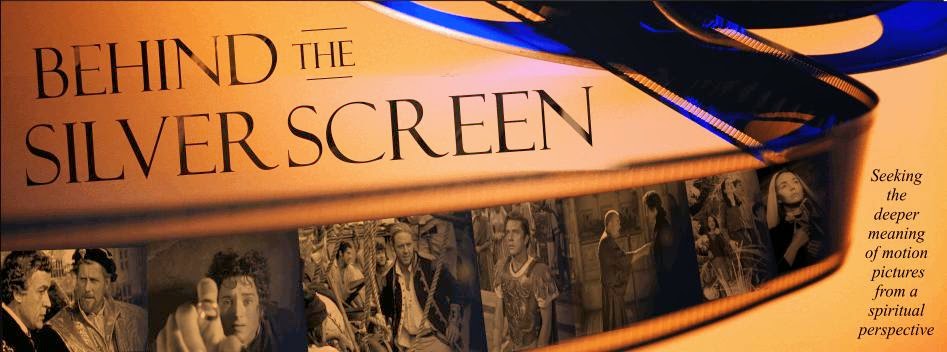Year: 2011
Filming: Color
Length: 107 minutes
Genre: Christian/Drama/Inspirational/Romance/Travel
Maturity: PG-13 (for intense thematic elements)
Cast: Rachel Hendrix (Hannah Lawson), Jason
Burkey (Jason Bradley), John Schneider (Dr. Jacob Lawson), Jennifer
Price (Grace Lawson), Jasmine Guy
(Nurse Mary), Shari Rigby (Cindy Hastings), Chris Sligh (B-Mac), Austin
Johnson (Truman)
Directors: The Erwin Brothers
Personal
Rating: 3 Stars
***
It is hard for
pro-life films to be a success in a culture where abortion is all-too-often identified
as a basic human right. I am confident that one day it will be a given that
films will lament the horror of abortion, just as they rightly lament The Slave
Trade and The Holocaust today. But that is all in the future, and it doesn’t
help current Christian film-makers one bit. Hence, in spite of its many
draw-backs, I cannot help but praise October
Baby for its courage to look a glaring social injustice straight in the eye
without flinching.
Rachel Hendrix stars as Hannah Lawson, a freshman in college
who begins to experience a strange series of physical and psychological
ailments. When she takes part in a college drama and collapses on stage just
after the curtain rises, she is rushed to the hospital where serious inquiries
into her condition begin. The diagnosis states that all her symptoms are
connected to the fact that Hannah had an extremely difficult birth. Not only
that, but it is revealed that she is an abortion survivor and was adopted as a
baby.
Disillusioned and
angry over what she perceives as a conspiracy and deception on the part of her
adopted parents, Hannah seeks solace in her oldest friend, Jason Bradley,
played by Jason Burkey. He invites her to come on a road trip with him and his
quirky friends to celebrate Madi Gras
in New Orleans, Louisiana. He also indicates that they might be able to stop
off in Mobile Bay, Alabama, the place where Hannah’s birth certificate shows
she was born.
In spite of her Dr.
Lawson’s opposition to the plan, he lets her make her own decision, and Hannah decides
to take the opportunity to go in search of her biological mother and takes to
the road. In the process, she meets geeky Truman and his hippy cousin, B-Mac,
the owner of the broken-down mini van on which they embark. She also gets the
chance to get into a hot head-on encounter with Jason’s catty girlfriend, Alanna,
who is jealous of his affection for Hannah and accuses of her trying to get
attention through her various medical conditions.
Eventually, Hannah
and Jason find themselves making the trek to Mobile alone, getting into various
scrapes and misunderstandings along the way and discovering that they really do
need each other in more ways than one. Finally reaching their destination in
Mobile, Hannah meets Mary, the former nurse at the abortion clinic where she
was almost killed. In the course of the meeting, it is revealed that she also
had a twin brother who died as a result of the abortion mutilation not long
after he was born. Mary also tells Hannah that her biological mother, Cindy
Hastings, is still in Mobile.
Determined to find
her at any cost, she creates a heart-breaking scene in the legal firm where
Cindy works and is coldly repudiated by her biological mother, who has been trying
to hide from her past from many years. Immediately afterwards, Dr. Lawson makes
an appearance and angrily whisks a disgruntled Hannah back home, blaming Jason
for encouraging her to look into her past and paving the way for the painful
incident. But what is done cannot be undone, and Hannah will need to experience
an inner spiritual awakening before she can rejuvenate her life and her ability
to love.
October Baby is a relatively
small-budget Christian film, with some decent cinematic aspects to speak of. The
music score is not exactly in unison with my tastes, but the lyrics in and of
themselves are nice and the theme, “Life Is Beautiful”, supports the overarching
moral of the story. Some of the visual shots are were quite striking, and the
use of slow-motions filming was particularly poignant in the scene where Cindy leaves Hannah
standing outside her office, and Cindy’s little girl waves at her
broken-hearted half-sister before the car pulls away.
It is always
difficult to get the perfect balance that makes an appealing motion picture,
especially when working with limited resources, and production values is this
film are not exactly tops. Much of the acting in first half of the movie is
obviously acting, and the plot sometimes seems forced to hammer home the
message. For example, Dr. Lawson sending in Hannah’s diary entry to the doctor
and her hysterical reaction just seemed a bit manufactured for drama, as did
her head-to-head with Jason’s girl-friend.
I honestly found
Hannah’s character to be quite difficult to sympathize with through much of the
film, and her “friend” Jason was a close second. In fact, a behind-the-scenes
interview revealed that Jason Burkley and Rachel Hendrix actually had better
chemistry off-screen than on! Maybe I’m being a little picky, but the
relationship between their characters was teeny-bopper to the max and lacked the
depth and dynamics that make friendships between guys and girls fascinating. Hannah
seemed to be stuck in a perpetual state of whining, whilst clueless Jason enunciated
such epiphanies as, “Well…hey….like….this must be…like….really terrible for
you….”
I was really
hoping for more insightful dialogue and mature emotional responses from the
characters when faced with the problems at hand. But therein lies one of the
main blots in the whole feel of the film: most of main characters have a
definite lack of maturity, including Hannah’s parents. Their relationship with
their adopted daughter is often erratic, such as her father revealing her diary
entry and later ordering Jason never to speak to Hannah again after he finds
them in Mobile.
Alternately, her
parents can come off as being rather woosy, letting Hannah snap back at them almost
every time they try to communicate wit her and skulk around with a blatantly bad
attitude. And then there’s the issue of her father non-chalontly letting her
“make up her own mind” about going on an unchaperoned road-trip in B-Mac’s
broken-down hippy-mobile with an assortment of quacky fellow travelers for a
smash-out Madi Gras celebration in
Alabama! While some of the incongruity of the road trip itself set itself up as
an avenue for comic relief, much of the “humor” involving the B-Mac Brigade
felt more forced than funny.
I’ll admit that
the plot picked up pace as Hannah came closer to finding out the truth about
her past. The very fact that victims of abortion are finally being given a face
through Hannah’s character is full of controversial implications long needed to
be brought to the fore, and the scene where the former abortion assistant reveals
the lurid details about the abortion industry is deeply emotionally intense.
But this is not a
judgmental film. On the contrary, sympathy is shown as much to the biological
mother and abortion nurse as to Hannah and her adopted parents. I comment the filmmakers
for finding two actresses who actually looked like they have been mother and
daughter. Cindy’s refusal to acknowledge her daughter is heart-breaking, as
much as the emotional reunion between Hannah and her adopted parents is
healing. The scene in which Hannah and Dr. Lawson visit her brother’s grave,
and he tells her how he used to hold her as a baby and be afraid to let her go
after tragically losing three of his other children is a tear-jerking moment.
In a gesture of
solidarity between Protestants and Catholics in the pro-life movement, the
Baptist Hannah is shown going into a Catholic Cathedral and finding spiritual
guidance from the priest there, who says, “Only in forgiveness can you be free....forgiveness that is well beyond your
grasp, or mine…..but, if the Son shall set you free, you will be free
indeed." Catholic viewers will probably pick up on two inaccuracies
here; namely, that the priest refers to “services” instead of “masses” and that
he neglects to genuflect when entering and leaving the pew! Nevertheless, the
ecumenical message was encouraging and appreciated for the spirit in which it
was inserted.
The finale was
satisfactory for all involved, and hope wins out over despair. Hannah is
reconciled with her adopted parents and starts dating the dingy but devoted
Jason. Cindy is touched to the core by her biological daughter’s note of
forgiveness and finally finds the strength to reveal her troubled past to her
husband. Nurse Mary is also given new courage which enables her to return to
the medical field, this time as a midwife.
October
Baby may not be the best picture in the realm of cinematic art, but the
good intent of those who worked on it as a true labor of love is possible is
priceless. The kindness of the policeman and his injunction to “hate the sin,
but love the sinner” sums up God’s own compassionate attitude towards us. It
also sums up what should always be at the heart of the pro-life movement.
 |
| Hannah Lawson (Rachel Hendrix) steps onto the stage |
